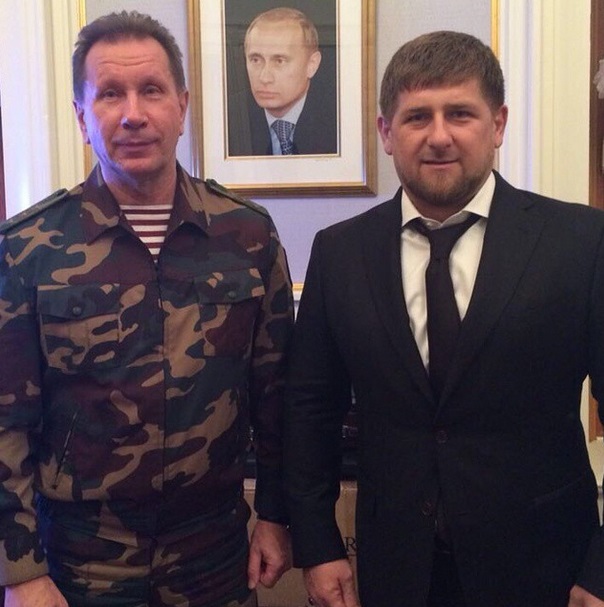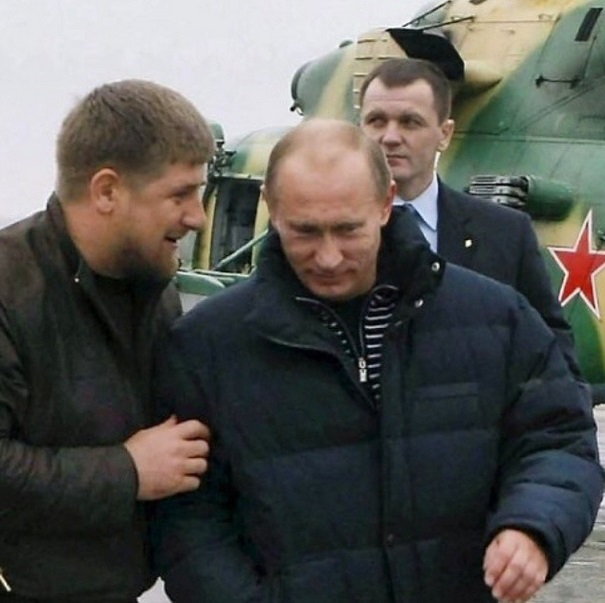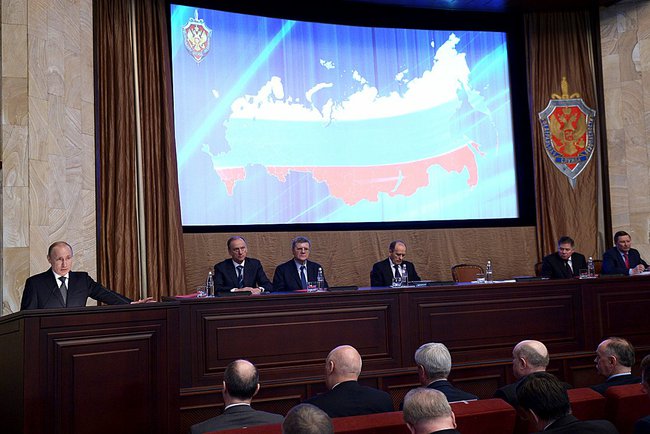In Russia This Week, you will find links to the stories of Russia Update in the last week and to special features, plus an article following up on the news and trending topics below.
Last issues:
All the Strange Things Going On in Moscow
Remembering Boris Nemtsov, Insider and Outsider (1959-2015)
Please help The Interpreter to continue providing this valuable information service by making a donation towards our costsâ€.
About three weeks ago during a period when President Vladimir Putin was missing, we asked if there was a slow-moving coup under way.
There were a lot of strange things going on — the assassination of opposition leader Boris Nemtsov on February 27, for which the Kremlin was held responsible seemed to be a sign of either a split in the government, or itself had caused a rift or imbalance in the coalition of hardliners and less-hardliners in the Kremlin. Putin disappeared from the public eye from March 4 through March 15.
Then Putin re-apppeared in St. Petersburg to meet with Kyrgyz President Almazbek Atanbayev, looking somewhat drawn. He had little to say, and did not explain his absence.
Since then, he has kept up his usual busy schedule, going to the Eurasia Economic Union summit with the leaders of Belarus and Kazakhstan in Astana — although Atanbayev did not come and evidently Kyrgyzstan’s membership is still being negotiated. He has had a full schedule of meeting with Kremlin officials and federal ministers as well as the governors of regions.
While he was missing, there was speculation that hardliners might be pushing Putin aside, even in a coup, or would re-arrange the “correlation of forces” to use the term of Soviet doctrine so that more hardline policies would prevail across a number of fronts — or conversely, some of the hardline policies he had presided over, such as the war in Ukraine, would be adjusted or softened.
At that time, it was noted that former prime minister Yevgeny Primakov had spoken out publicly and virtually given an ultimatum, that reforms had to be made and the economic crisis overcome, and that while Crimea could be kept, the Donbass should not be annexed to Russia. Russia had enough problems, and couldn’t pay for it, or isolate itself further from the world.
There was speculation that in the internal Kremlin struggles for power, Putin was relying on Ramzan Kadyrov and would draw in the Interior Ministry chiefs in Moscow, notably his close associate commander-in-chief of the Interior Troops Viktor Zolotov. Zolotov also went missing during this period, with rumors even circulating by Kremlin bots on Twitter that he was dead — although he was to resurface a week after Putin did.
Other speculation included theories that Defense Minister Sergei Shoigu, who also supposedly allied with Putin as distinct from other siloviki or law-enforcers and intelligence directors, was sidelined.
The theory was that Sergei Ivanov and various other siloviki, symbolized most by Igor Sechin, head of Rosnoft, formed a faction or bloc that was countering Putin and raising their own stature if not moving towards an outright “generals’ coup” or palace coup.
So where does all this stand now, three weeks later? We’ll go through the data points from the news stories during this period and first compare them to the predictions or concerns expressed by the two bloggers, Pavlo Praviy and KatrinSha, then add in some other points:






